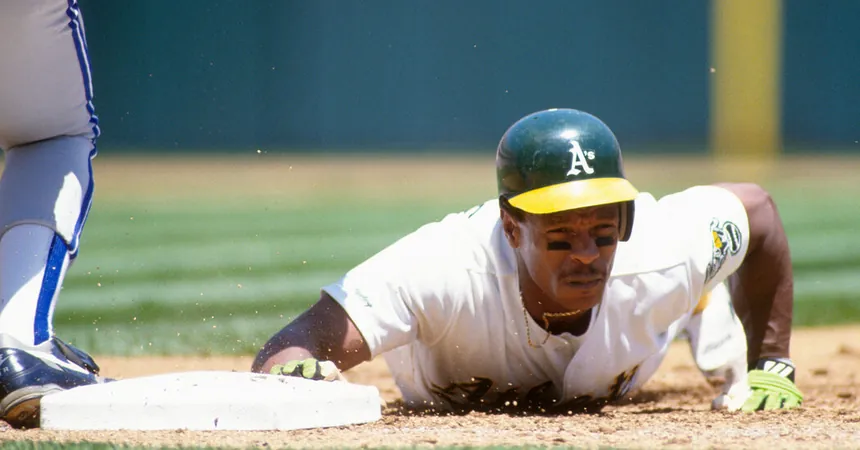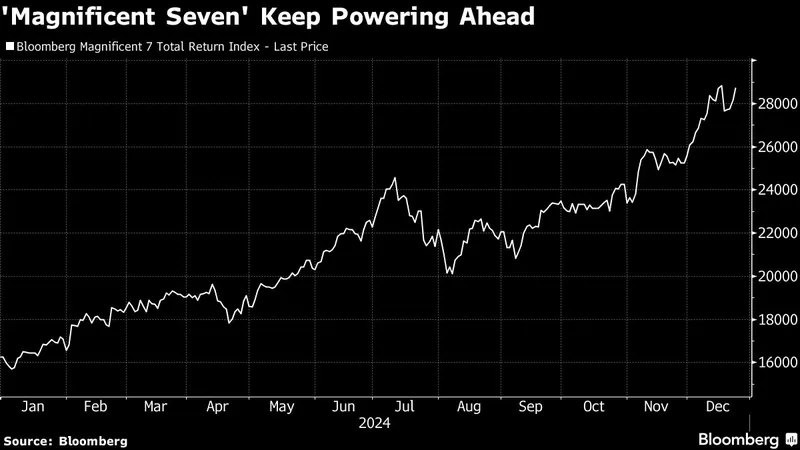
Baseball Legend Rickey Henderson, the ‘Man of Steal,’ Passes Away at Age 65
2024-12-22
Author: Ming
Rickey Henderson, the flamboyant and electrifying Hall of Fame outfielder celebrated as the greatest leadoff hitter in Major League Baseball (MLB) history, has passed away at the age of 65. His family announced the heartbreaking news, expressing gratitude to the staff at the University of California, San Francisco Medical Center, but did not disclose the cause of death.
Known as “the man of steal,” Henderson set an unparalleled record for stolen bases, finishing his illustrious career with a staggering 1,406 steals—a record that remains unchallenged. He achieved the remarkable feat of stealing more than 100 bases in three different seasons, including a jaw-dropping 130 bases in 1982, a single-season record that still stands.
Beyond stolen bases, Henderson also leads in runs scored with 2,295, including 81 from leadoff home runs—another MLB record. His tally of 2,190 walks places him second in MLB history, just behind Barry Bonds. Renowned baseball statistician Bill James once remarked on Henderson’s extraordinary accomplishments, stating that one could find numerous Hall of Famers whose combined records would not match Henderson’s striking individual stats.
Over 25 seasons and nine teams, Henderson is most remembered for his time with the Oakland Athletics, where he played on four separate occasions, and the New York Yankees. He left a legacy not only for his on-field prowess but also for his eccentric personality. Henderson had an infamous knack for quirky behavior; he once missed games due to frostbite after falling asleep with an ice pack on his foot, and he famously framed a $1 million bonus check instead of cashing it.
Henderson’s self-referential proclamations, often speaking in the third person, added to his larger-than-life persona. He stated, “Rickey don’t like it when Rickey can’t find Rickey’s limo.” Such oddities were frequently juxtaposed with his exceptional talent, showcasing his unique character within the sport.
Despite his compact 5-foot-10 frame, Henderson utilized his incredible speed and agility to dominate the game. He was not only a wild base-stealer but also a shrewd hitter, adopting a crouched stance that minimized his strike zone, making him a nightmare for pitchers. A minor league coach once claimed he believed Henderson could outrun the ball itself.
Incredibly, Henderson wasn't only fast on his feet—his strategic thinking on the base paths was pivotal. He studied pitchers intently to understand their patterns, claiming, "I can tell you by his move if that pitcher is going to first base or home plate every time." His headfirst slides, inspired by experiences flying, showcased his commitment to perfecting his craft.
Henderson's transition into a power hitter came after the 1982 season when he sought to increase his earning potential following an arbitration hearing. He went on to redefine his game effectively, demonstrating a blend of speed and power that made him exceptionally hard to contain.
Rickey’s career was marked by stunning moments, including a triumphant return to Oakland in 1989. Initially struggling with the New York Yankees, he flourished after his return, leading the A’s to an American League Championship Series MVP award, and helped secure a World Series title against the San Francisco Giants during a historic series affected by an earthquake.
Born Rickey Nelson Henley in Chicago on Christmas Day in 1958, Henderson faced early challenges as a child. After his parents’ separation, he was raised under difficult circumstances, eventually moving to California, where his natural athletic talent emerged. Initially more focused on football, his rapid success on the baseball diamond after incentivized encouragement from a guidance counselor revealed his true calling.
As we remember Rickey Henderson, we celebrate not only his remarkable statistics and achievements on the field but also the vibrant personality that entertained millions. His legacy as one of baseball’s all-time greats will undoubtedly endure, inspiring future generations of athletes.



 Brasil (PT)
Brasil (PT)
 Canada (EN)
Canada (EN)
 Chile (ES)
Chile (ES)
 España (ES)
España (ES)
 France (FR)
France (FR)
 Hong Kong (EN)
Hong Kong (EN)
 Italia (IT)
Italia (IT)
 日本 (JA)
日本 (JA)
 Magyarország (HU)
Magyarország (HU)
 Norge (NO)
Norge (NO)
 Polska (PL)
Polska (PL)
 Schweiz (DE)
Schweiz (DE)
 Singapore (EN)
Singapore (EN)
 Sverige (SV)
Sverige (SV)
 Suomi (FI)
Suomi (FI)
 Türkiye (TR)
Türkiye (TR)